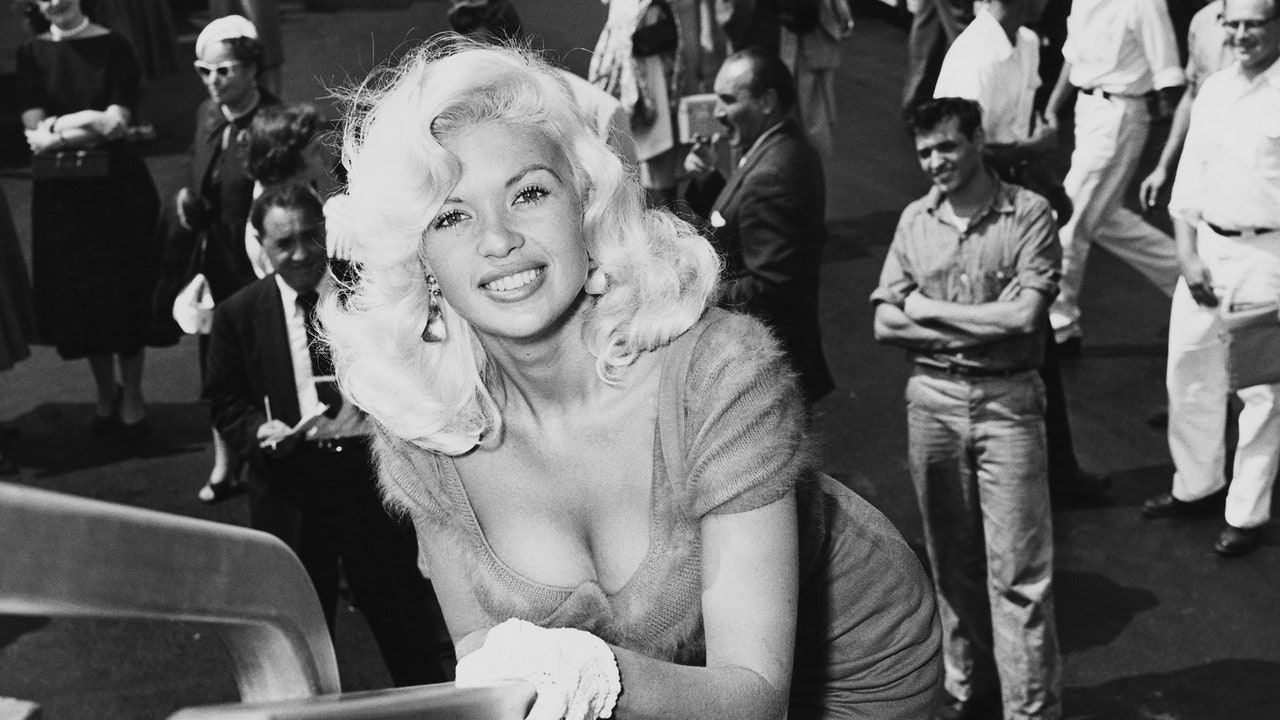Jayne Mansfield’s name has become synonymous with the golden age of Hollywood—or at least its slightly tawdry tail end, when she found fame as a Holl
Jayne Mansfield’s name has become synonymous with the golden age of Hollywood—or at least its slightly tawdry tail end, when she found fame as a Hollywood bombshell and a walking punchline. But 58 years after her death from a freak car accident, it’s become clear we never really knew her at all. Mansfield’s daughter, Mariska Hargitay, set out to change that with her personal documentary, My Mom Jayne, which premieres this Friday, June 27, on HBO and Max.
So, who was this “smart dumb blond”? This single mother turned overnight star? This Marilyn Monroe manqué, who lived in a pink palace on Sunset Boulevard and became renowned for being renowned?
Mansfield was born Vera Jayne Palmer on April 19, 1933, in Bryn Mawr, Pennsylvania, the only child of a successful lawyer and a former schoolteacher. She experienced a great deal of loss and dislocation early on, starting with the death of her father: three-year-old Jane was in the car with him when he suffered a fatal heart attack. Her mother soon remarried, and the family moved to an upper-middle-class neighborhood in Dallas, where an ambitious Mansfield mastered four foreign languages, as well as dancing, piano, and violin. She dreamed of moving to Hollywood to be an actor, and even dropped her first name in favor of her middle name, which she thought was more marquee-worthy. Antsy to escape her parents’ strict rules, Jayne married her high school sweetheart, Paul Mansfield, before she’d even graduated. By the end of that year, she’d given birth to her first daughter, Jayne Marie Mansfield.
Determined to have a career, Mansfield enrolled in the University of Texas the next spring, along with her husband. The couple both performed with the Austin Civic Theater—she as an actor, he as a pianist. When Paul joined the Reserve Officer Training Corps during the Korean War in 1952, Jayne took acting classes and bided her time until he returned. One of her early acting coaches remembered her as being “very serious about a career in the theater. And she had a little talent too, for comedy in particular,” according to an article later cited in the biography Jayne Mansfield: The Girl Couldn’t Help It by Eve Golden. When Paul returned, he agreed to move to Los Angeles, but the marriage quickly fractured, and by 1954, Jayne and her juvenile daughter were on their own in Hollywood.
Although she hoped to audition for sedate roles, Mansfield took a casting director’s suggestion and bleached her hair platinum blond. Her first break came via a thriller called Female Jungle, which nabbed her a seven-year contract at Warner Bros. While the studio put her to work with a flurry of diminutive parts, Mansfield did all kinds of public appearances and sexy publicity stunts to raise her profile, even as she insisted to journalists that she wanted to be known for her acting, not her bust.
She briefly got attention for both as a Marilyn Monroe–style star in the Broadway show Will Success Spoil Rock Hunter? The play fast-tracked Mansfield’s career, landing her on the cover of Life magazine at the age of 22. But even positive reviews were often wrapped in lewd references to her body, or they framed her as the sexy novel girl nipping at Marilyn’s heels.
Mansfield found romance in New York, falling in love with one of Mae West’s chorus boys: bodybuilder and Mr. Universe winner Mickey Hargitay. (Both were still married to others at the time.) When she returned to Hollywood to star in the movie The Girl Can’t Help It, Hargitay followed. Her performance in that movie is effervescent, but already you can see her—or at least her voluptuous body—being turned into a sight gag.
Mansfield certainly played along, as the legendary photo of her at a party next to Sophia Loren, who is side-eyeing Mansfield’s extremely exposed decolletage, makes evident. “She came right for my table. She knew everyone was watching,” Loren later recalled. “I’m staring at her nipples because I am afraid they are about to come onto my plate.”
Mansfield’s next film—an adaptation of Will Success Spoil Rock Hunter?—was a hit. But that was more or less the peak of her career as a respected actor, after which her reputation increasingly revolved around B movies and breasts. The Girl Couldn’t Help It quotes the celebrity evangelist Billy Graham complaining to a Madison Square Garden crowd that “the average teenager knows Jayne Mansfield’s statistics better than he does the First Commandment,” while talk show host Jack Paar famously introduced her by saying, “And here they are, Jayne Mansfield!”
Occasionally, someone would point to the artificiality of Mansfield’s ditzy, sex bomb persona. “This is a whole facade of yours that isn’t based on who you are—it’s an act!” Groucho Marx said on a talk show at the time. But she saw being “known” as part of her job. An influencer half a century before the term existed, Mansfield attended a dizzying array of store openings and sponsored appearances, in addition to Vegas residencies and military base tours. In between, she started a family with Hargitay, raising Mickey Jr., Zoltan, and Jayne Marie in their pink mansion, complete with a custom-made heart-shaped pool.
After she was dropped from her studio contract, Mansfield put the final nail in her career by agreeing to appear in the sex comedy Promises…Promises!, the first major movie release to feature a Hollywood star (that is, Mansfield) nude. This was still the conservative early 1960s, and several American cities banned it. Accompanying photos of her in Playboy further besmirched her image. In My Mom Jayne, Hargitay’s third wife, Ellen, speaks of Mansfield being absorbed in negativity and depression at that panicky time, because “she wasn’t doing the kind of work she dreamed of doing.”

COMMENTS